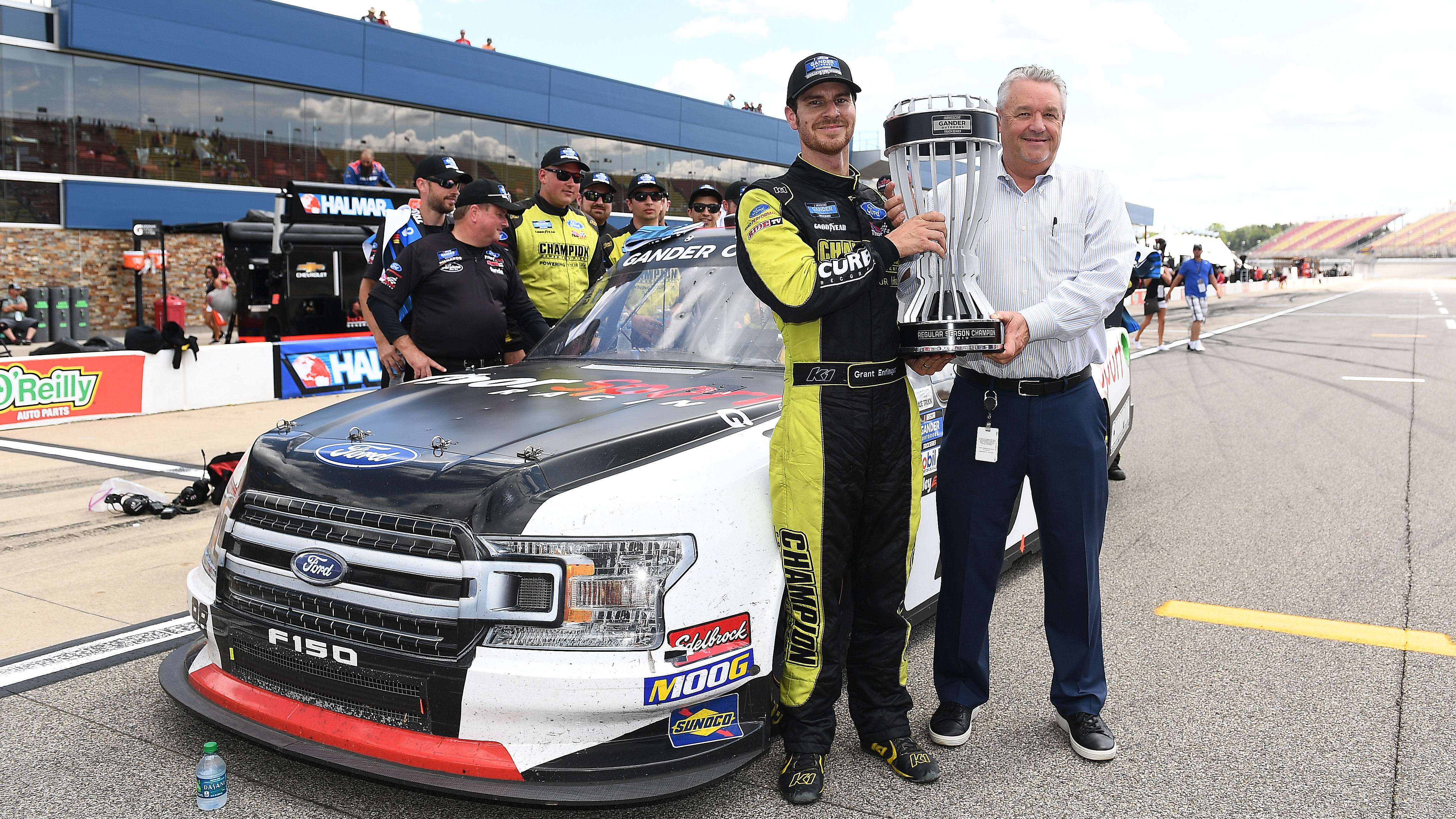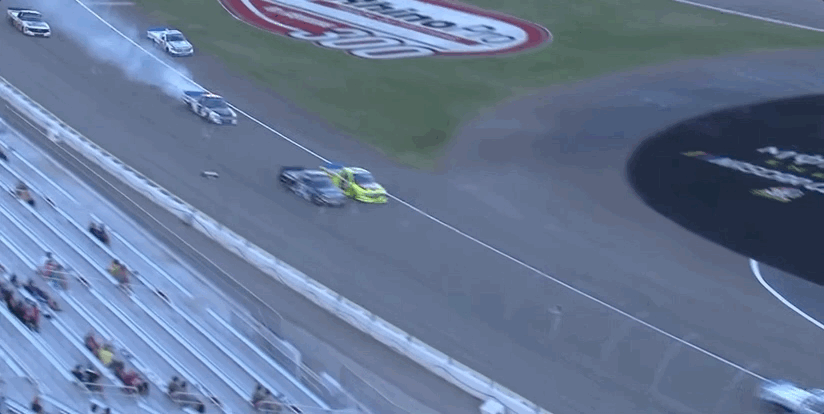NASCAR Playoffs See Truck Series Regular-Season Champion Eliminated In First Round
On Aug. 10, NASCAR Truck Series driver Grant Enfinger won the series' regular-season championship, awarded to the driver with the highest amount of points accumulated—and thus the most consistent success—over the first 16 races of the year. By Sept. 13, he was out of contention for the title.
It was just another reminder that while NASCAR's elimination-playoff system might be entertaining, it doesn't always produce the most legitimate outcomes.
Enfinger won the regular-season championship, getting the trophy at the last race of that part of the season in Michigan. He did so on points alone, without having won a race so far this year.

The regular-season finish made him one of eight drivers to go on to compete for the Truck Series title in its seven-race playoff, in which qualifying drivers go through three rounds to decide the champion. Enfinger didn't make it through the first round, courtesy of his truck erupting in smoke and taking him out of the cutoff race at Las Vegas Motor Speedway.
NASCAR's playoffs work differently in each of its top three national series, but in the Trucks Series, the year currently consists of 16 regular-season races and seven playoff races. Eight drivers qualify based on wins and points, and the playoffs are broken into three rounds: two preliminary rounds that each consist of three races, and a final round consisting of just one race.
Two drivers are eliminated after each round, meaning six qualify for the second round and four make the final round. In the final round, the remaining playoff contender who finishes the highest in that single, final race wins the title.
It's all a lot different from the old days, when the driver with the most points at the end of the season won the title. But this system favors entertainment over consistency, meaning drivers don't really have the time over the course of three races to pull themselves out of a hole of misfortune, should they need to do so.
The turnaround is too quick, and sometimes that leaves the most successful drivers going into the playoffs out of contention by virtue of a little bad luck.
In Enfinger's case, he went into the first round of the playoffs just off of taking the regular-season trophy. He finished fifth in the first playoff race at Bristol, 13th at the Mosport road course in Canada, and, after an eighth-place start in the cutoff race at Las Vegas, his truck burst into a cloud of smoke early on, placing him 31st of 32 trucks in the finishing order. He only logged six of the 134 laps.
The commentators immediately began talking about how unfortunate it was given "the season he's had" and his "solid start to this race," but sometimes, neither of those things are enough. In this style of playoff, you need luck.
"Yeah, we had a really good ThorSport Racing F-150," Enfinger said in a television interview after he got out of the truck. "Just a shame our season hopes come down to quality control and a spec part that we had nothing to do with, so I definitely share our owners' frustration with the parts there under the hood. We had a good truck, just wasn't meant to be."
That, it certainly wasn't.
